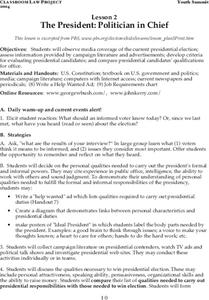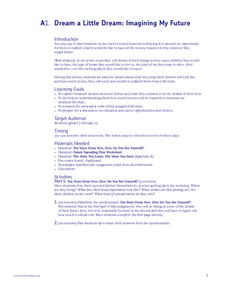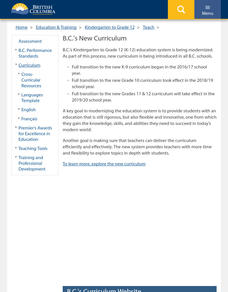Curated OER
The President: Politician in Chieft
Students explore the role of the U.S. President and the media coverage in presidential elections. They discuss what it means to be informed, the issues they consider most important, and reflect on what they learned from their interviews....
Curated OER
Analyzing Folklore: Redwall
Brian Jacques’ novel Redwall provides the focus for a series of lessons involving the analysis of folklore. Adopting the persona of a character, groups write letters in the voice of their character, assemble a collage using Microsoft...
Curated OER
Advertising Conversation
Are you struggling to get a rich discussion going between your learners? Use these questions to spark a natural conversation about advertising and the media. Learners pair up, and each speaker gets a different set of questions to ask...
Curated OER
Reading Primary Source Documents: Historical Content
Why do we read primary source documents? What can they give us that other writings cannot? Provide your learners with any of the primary sources attached here (there are seven), and have them complete the graphic organizer (which opens...
Curated OER
Dream a Little Dream: My Future
What will the future hold? How can I make my dreams come true? Since learners don't have fairy god mothers, they'll need to develop strong goal-oriented plans. They concoct ideas of their dream life, determine the type of income needed...
Curated OER
Help Wanted: President of the United States
Learners consider qualities and United States president should have. In this government lesson, students research the responsibilities of the president and use that information to create an advertisement that describes the job and...
Curated OER
Mathematical Magazines
Students look through magazines and calculate the percentages of the types of ads in the magazines. In this percentages lesson plan, students create a graph to show their results.
Curated OER
Grade 9 - Personal Development (Healthy Living)
Ninth graders analyze lifestyle factors that affect health and demonstrate an awareness of key lifestyle practices associated with prevention of disease.
Curated OER
Why We Communicate
Learners identify the three common reasons for communication: information, persuasion, and entertainment. They create media messages for different purposes and develop a purpose of message shapes and how it helps shape the message.










